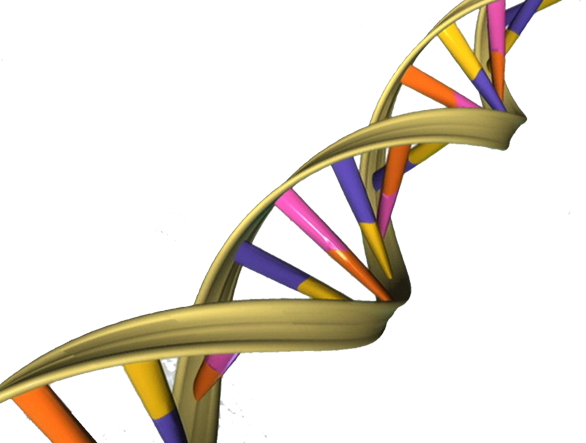What Can Your DNA Tell You Now?
Q: Why have DNA home testing kits stopped showing you what diseases you might get?
A: When the Human Genome Project was completed in 2003, it opened up a brave new world of possibilities for consumers. Companies began marketing home kits to analyze the DNA in your saliva. At first, the results provided details about your family history, such as the geographic origins of your ancestors. But can DNA information tell much more? Such as what diseases you might be at a higher risk for? Or if you have a gene linked to heart disease or Alzheimer’s? Or if you don’t respond well to certain medicines (or PEDs!) or respond really well to others? Or if you’re a carrier of a serious disorder which could be passed on to your children? Could knowing about your personal DNA help you make lifestyle changes and other interventions to avoid cancer and other diseases, customizing your health care and nutrition – and maximizing your performance – based upon individual genetic predictions?
Firms expanded direct-to-consumer marketing of “personal genomics service” (“PGS”) testing kits into the area of predictive medicine by offering “health reports” on various diseases and conditions, including carrier status and drug response information. The goal was to enable consumers to “take steps toward mitigating serious diseases” such as diabetes, heart disease and cancer.
But everything came to a screeching halt in November 2013, when one of the companies marketing a PGS kit received a Warning Letter from FDA claiming the product’s marketing made it illegal. After major missteps by the company, 23andMe, FDA declared that marketing the kit for predictive medical purposes rendered it a “medical device,” requiring pre-market clearance or approval from FDA which the company had failed to obtain. 23andMe backed down and reverted to marketing the kits only for ancestry purposes. Other companies followed suit, largely shutting down the predictive health use market for now.
The scientific concerns expressed by FDA focused on the lack of analytically or clinically validating studies or reliability information. How accurate is the kit’s analysis? Not very, say some critics. And how clinically valuable is it? For example, what predictive value is information about diseases that result from a complex mix of factors beyond genetics? Take Type-2 diabetes: your likelihood of getting it is only partly genetic — lifestyle factors like diet and exercise play a huge role; the same with cancer and heart disease.
FDA was especially worried about possible false positives and false negatives. For example, what if a test mistakenly shows a high risk for breast cancer and the user then orders many thousands of dollars of unnecessary medical tests or, even worse, insists on prophylactic chemotherapy or surgery such as a double mastectomy? Or if a false negative test for cancer risk reassures the user to forego regular medical screenings … until it’s too late? What if erroneous drug response information causes a user to stop taking a prescription medicine or to alter dosing? Or what if the information, regardless of accuracy, causes the user to freak out emotionally or become depressed?
These are valid concerns, but on the other hand, isn’t more information generally a good thing for people? Wouldn’t someone who learns they may have a high genetic risk for diabetes or heart disease become more likely to eat right and exercise? Why stifle the information completely? Couldn’t FDA’s chief concerns be solved with warnings advising consumers about false readings, that they should never act upon PGS information without a doctor’s advice, and perhaps with setting up a 24-hour counseling service for users to ask questions about the test and its results?
If the science isn’t quite ready for prime time now, it’s just a matter of time until a company, complete with reliability documentation, seeks clearance for a PGS kit for predictive medical purposes. What then? Well, even if FDA’s worries are resolved, these products create many other legal issues. For example, what if your data is shared? What can third parties do with this information? A federal law, the Genetic Information Nondiscrimination Act (“GINA”), prevents discrimination by health insurers and employers, but does not apply to life insurance or long-term care insurance (some states have passed protective laws).
How much control should we have over our own health? Expect more clashes between FDA bureaucrats and techno-pioneers; an ongoing ideological battle between government regulation and personal responsibility. And as science races forward, law struggles to catch up. Stay tuned!
______________________________
Rick Collins, JD, CSCS [www.rickcollins.com] is the lawyer that members of the bodybuilding community and nutritional supplement industry turn to when they need legal help or representation. [© Rick Collins, 2014. Adapted from Rick’s column in Muscular Development magazine. All rights reserved. For informational purposes only, not to be construed as legal or medical advice.]





